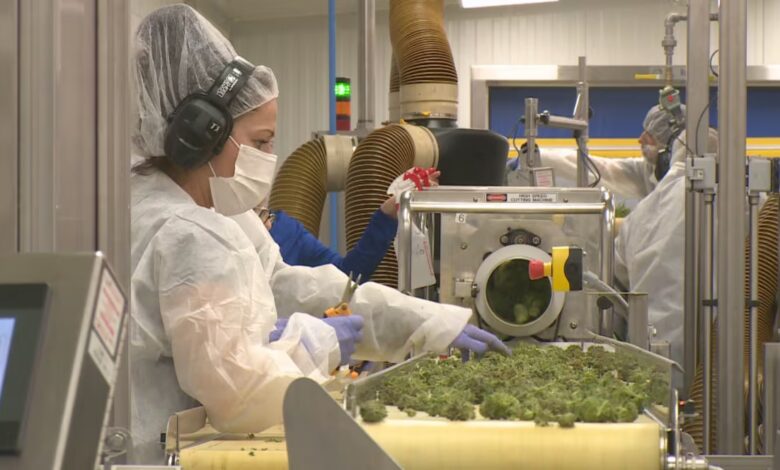Cannabis Manufacturing Automation: Streamlining Production from Seed to Sale

As the cannabis industry continues to mature and expand, the integration of automation in manufacturing processes has become increasingly essential for optimizing efficiency and ensuring compliance with stringent regulations. The journey from seed to sale involves a complex array of stages, each requiring meticulous attention to detail and precision. Automation technologies, ranging from advanced cultivation systems to sophisticated packaging solutions, are redefining traditional practices and enabling businesses to streamline their operations. By adopting automated processes, cannabis manufacturers can enhance productivity, reduce labor costs, and minimize human error, all while maintaining the high quality and safety standards that consumers expect. Moreover, automation plays a crucial role in data collection and analytics, facilitating informed decision-making and fostering innovation within the industry. This article will explore the various facets of cannabis manufacturing automation, examining how these cutting-edge technologies are transforming production workflows, improving traceability, and ultimately contributing to the growth and sustainability of the cannabis market. As we delve into the latest advancements and best practices, we will highlight the benefits and challenges associated with implementing automation solutions, providing valuable insights for manufacturers looking to navigate this evolving landscape effectively.
– Enhancing Efficiency with Cannabis Manufacturing Automation
The integration of automation in cannabis manufacturing has significantly transformed operational efficiency by minimizing manual processes and reducing the potential for human error. Through the use of advanced technologies such as robotics, IoT devices, and AI-driven analytics, companies can streamline production workflows, ensuring consistent quality and faster turnaround times. This not only accelerates the time from cultivation to distribution but also enhances traceability and compliance within a highly regulated industry.
Furthermore, cannabis manufacturing automation allows for better resource management, optimizing both labor and material usage. Automated systems monitor various production parameters in real-time, enabling manufacturers to quickly identify and address inefficiencies. The result is a more agile production environment that can adapt to shifts in demand while maintaining high standards of safety and quality. As the market continues to evolve, the ability to leverage cannabis manufacturing automation will prove essential for businesses seeking a competitive edge.
– Key Technologies Driving Automation in Cannabis
By leveraging algorithms that learn from historical data, businesses can predict trends, optimize growing conditions, and improve yield outcomes. Additionally, automated environmental controls utilizing sensors and smart systems ensure that optimal conditions are maintained throughout the cultivation and processing stages, leading to higher quality products and reduced waste.
Moreover, integration of blockchain technology in cannabis manufacturing automation enhances supply chain transparency and security. By providing an immutable record of every step from seed to sale, companies can better enforce compliance with regulatory requirements and build consumer trust. As these technologies continue to evolve, they are expected to further revolutionize the cannabis industry, enabling manufacturers to achieve unprecedented levels of efficiency and accountability.
– Benefits of Streamlined Production from Seed to Sale
Streamlined production processes from seed to sale significantly enhance operational efficiency within cannabis manufacturing automation, allowing businesses to respond swiftly to market demands. By minimizing bottlenecks and reducing cycle times, companies can ensure that products move seamlessly through each stage of production. This efficiency not only accelerates time-to-market but also helps in managing inventory more effectively, thus reducing overhead costs and maximizing profitability.
Additionally, streamlined processes foster better quality control throughout the production chain. Automated monitoring systems can continuously assess the quality of raw materials and finished products, ensuring compliance with industry standards. This heightened level of oversight minimizes the risk of errors and product recalls, ultimately leading to improved customer satisfaction. With a focus on optimizing every aspect of production, businesses can cultivate a reputation for reliability and excellence in a competitive market.
In conclusion, the integration of automation within cannabis manufacturing represents a significant advancement in streamlining production from seed to sale. By leveraging cutting-edge technologies, companies can enhance efficiency, reduce operational costs, and ensure consistent product quality throughout the manufacturing process. As the cannabis industry continues to evolve and mature, the adoption of automated solutions will not only facilitate compliance with regulatory standards but also drive innovation and competitiveness in a rapidly growing market. Embracing these advancements will ultimately position cannabis manufacturers to meet increasing consumer demand while maintaining sustainability and operational excellence.




